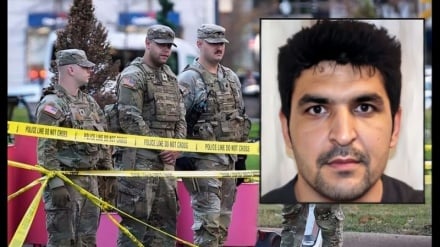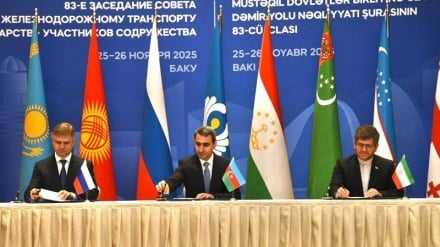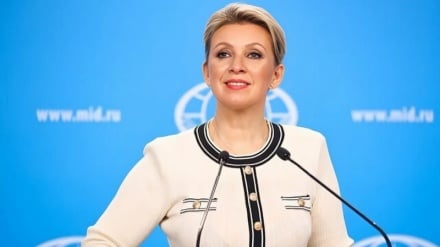Iran’s decision to spin advanced centrifuges is lawful
The Islamic Republic says the suspension of its nuclear commitments is not a violation of the Joint Comprehensive Plan of Action (JCPOA) but is based on Articles 26 and 36 of the agreement itself.
The fate of the Iran deal with the 5+1 group has been in doubt since May 2018, when the US abruptly abandoned the deal and reinstated the anti-Iran sanctions that it had lifted as part of the JCPOA. Tehran says the European cosignatories — Britain, Germany and France — have so far failed to uphold their commitments. They have expressed vocal support for the deal, but failed to provide meaningful economic incentives as required under the nuclear agreement.
Here we present you an article in this regard by staff writers of Iran's English language website of 'Fars news agency' under the heading: "Iran’s decision to spin advanced centrifuges is lawful." Please stay tuned:
Iran has launched a new generation of advanced centrifuges to roll back its nuclear deal commitments, including injecting gas into IR-6 centrifuges through a ceremony at Natanz Nuclear Facility.
The country can now produce enriched uranium 10 times as fast as the first-generation IR-1s allowed under the nuclear deal it signed with the 5+1 group in 2015, also known as the Joint Comprehensive Plan of Action (JCPOA).
The decision came a day after the Leader of Islamic Revolution Ayatollah Seyyed Ali Khamenei said talks with the US government will not bear any results, because the Americans are not ready to offer any concessions. It also came after the US used the 40th anniversary of the US embassy takeover by Iranian students to sanction key officials reporting to Ayatollah Khamenei and called on Tehran to release Americans believed to be held in the country.
Last July, Iran’s stockpiles of enriched low-grade uranium exceeded the 300-kilogram limit set in the nuclear deal. President Hassan Rouhani confirmed later in September that the nation was using advanced models of centrifuges to enrich uranium. This translates into the fact that adding more centrifuges will continue, designed to meet Iran’s enriched uranium demands and force the EU to encourage the US to return to the historic accord.
For those of you who remember, US President Donald Trump put the future of JCPOA in jeopardy when he unilaterally withdrew the US from the deal in 2018 and imposed unilateral sanctions on Iran.
The decision to deploy advanced centrifuges is designed to make sure all EU signatories to the deal (the UK, France, and Germany) will help Iran to see the economic benefits of the deal as well.
The irony is that the EU, which has voiced discontent over the US exit from the deal, has already created a mechanism, known as INSTEX, that will allow European countries to trade with Iran despite US sanctions. The new mechanism coordinates import and export payments so that cash between partners need not be handled by banks. The first transactions are yet to be processed in an attempt to keep Iran in the deal.
Though the US has complained the deal did nothing to limit Iran's nuclear capabilities, Europeans say it is working, a fact that the International Atomic Energy Agency has repeatedly confirmed in its reports. Willingly or not, Iran shouldn’t leave diplomacy with the EU in the dust, but it should also not forego its rights under the JCPOA.
Iranian Foreign Minister Mohammad Javad Zarif says the country has left the door open for negotiations over the fate of the 2015 nuclear deal despite its decision to further scale back its nuclear commitments.
Speaking to IRIB on Friday Nov. 08, Zarif referred to the country's recent decision to implement the fourth phase of reducing its commitments under the JCPOA in reaction to the US' withdrawal from the deal and Europe's failure to fulfill its side of the bargain.
The top Iranian diplomat said upon arrival in Turkey to attend the 24th meeting of the Council of Foreign Ministers of the Economic Cooperation Organization (ECO): "We had made it clear that if the measures of other parties do not yield results, we'd take the next steps to decrease our JCPOA commitments."
He said "The Iranian president announced on the first day of scaling back the JCPOA commitments that we will continue the negotiations despite taking our steps within the framework of the JCPOA,", adding that Tehran started the talks from the very first day and "did not say no to negotiation."
Zarif noted "We will hold talks with those parties interested in preserving the JCPOA; the French will continue their consultations on the issue, and we will leave the door open for negotiation and understanding."
This is important, because Russia and China - also signatories to the deal - have been trying to ease the weight of illegal sanctions on Iran. They know that sooner or later Iran will take more measures, and to stop this from happening, Iran needs to see the deal’s economic merits.
Interfax news agency quoted the Russian Foreign Ministry as saying recently that Iran's latest move to scale back its commitments under the JCPOA did not pose a threat to the non-proliferation regime. Moscow has supported the peaceful nature of Iran's nuclear program.
Also, on Friday Nov. 08, Russian Foreign Minister Sergei Lavrov slammed Washington for demonstrating "absolutely unacceptable actions" against Iran.
Lavrov said at the Moscow Nonproliferation Conference "Despite the well-known and absolutely unacceptable actions of Washington, the JCPOA is still in place." The top Russian diplomat added that Iran was "the most checked country in the world" after the nuclear pact.
Lavrov pointed out "The agreement has answered all questions the IAEA had for Tehran, created a situation of maximum transparency of the Iran's nuclear program, confirmed the legitimate rights of this country to develop peaceful atom technologies under control of the agency."
He said the JCPOA needs to be preserved as it turned Iran's nuclear program into one of the "most transparent" in the world.
Iran’s deputy foreign minister says safeguarding the national interests is more important than preserving a nuclear deal the country clinched with major world powers in 2015.
Abbas Araqchi told reporters in Russia on Friday Nov. 08 on the sidelines of the Moscow Nonproliferation Conference (MNC) 2019 “No country has any doubt about Iran's goodwill to preserve the JCPOA.”
He added “There is no doubt that if Iran is not enjoying the JCPOA's benefits, it will continue to scale back its commitments under the JCPOA.”
The Iranian diplomat noted that Tehran has transparently showed its will to both fulfill its commitments in accordance with the nuclear deal and reduce them if the remaining signatories fail to uphold their end of the bargain.
Araqchi pointed out Iran would continue to reduce its commitments in case of no change in the current circumstances.
Russian Foreign Ministry Spokeswoman Maria Zakharova recently warned that Iran's potential exit from the nuclear accord will undermine efforts by the international community aimed at resolving the Iranian nuclear issue.
She said "Iran's exit from the JCPOA will have adverse consequences," adding that a potential collapse of the deal would be caused by the unilateral US exit and "the inability of European partners to guarantee the conditions offered to Iran."
The nuclear deal, which has been ratified by the United Nations Security Council, should be fully implemented, sanctions should be lifted, and the US should return to the accord. Of course, there should be no preconditions, including Washington’s “maximum pressure” policy.
In summation, tensions wrought by US sanctions against Iran have divided US allies in Europe that were already financially struggling before being hit with the economic penalties’ knock-on effects. The EU countries are urging the US to lift its sanctions against Iran, because the approach is an utter failure.
Sanctions against Iran and other countries are an outright failure that are harming Western economic and geopolitical interests. There can be no question about it. The effectiveness of Washington’s sanctions is very much in doubt, just as the way it has been fighting a series of unending wars across significant parts of the planet.
Sanctions and military threats have failed to dissuade Iran to change course. The country won’t put its hands up and surrender. They haven’t stopped Iran from supporting its allies in the region. They haven’t dislodged Iran’s officials or forced a rollback of its nuclear and missile programs. This should tell you what you need to know about what passes for Iranian foreign policy in 2019.
ME/SS


